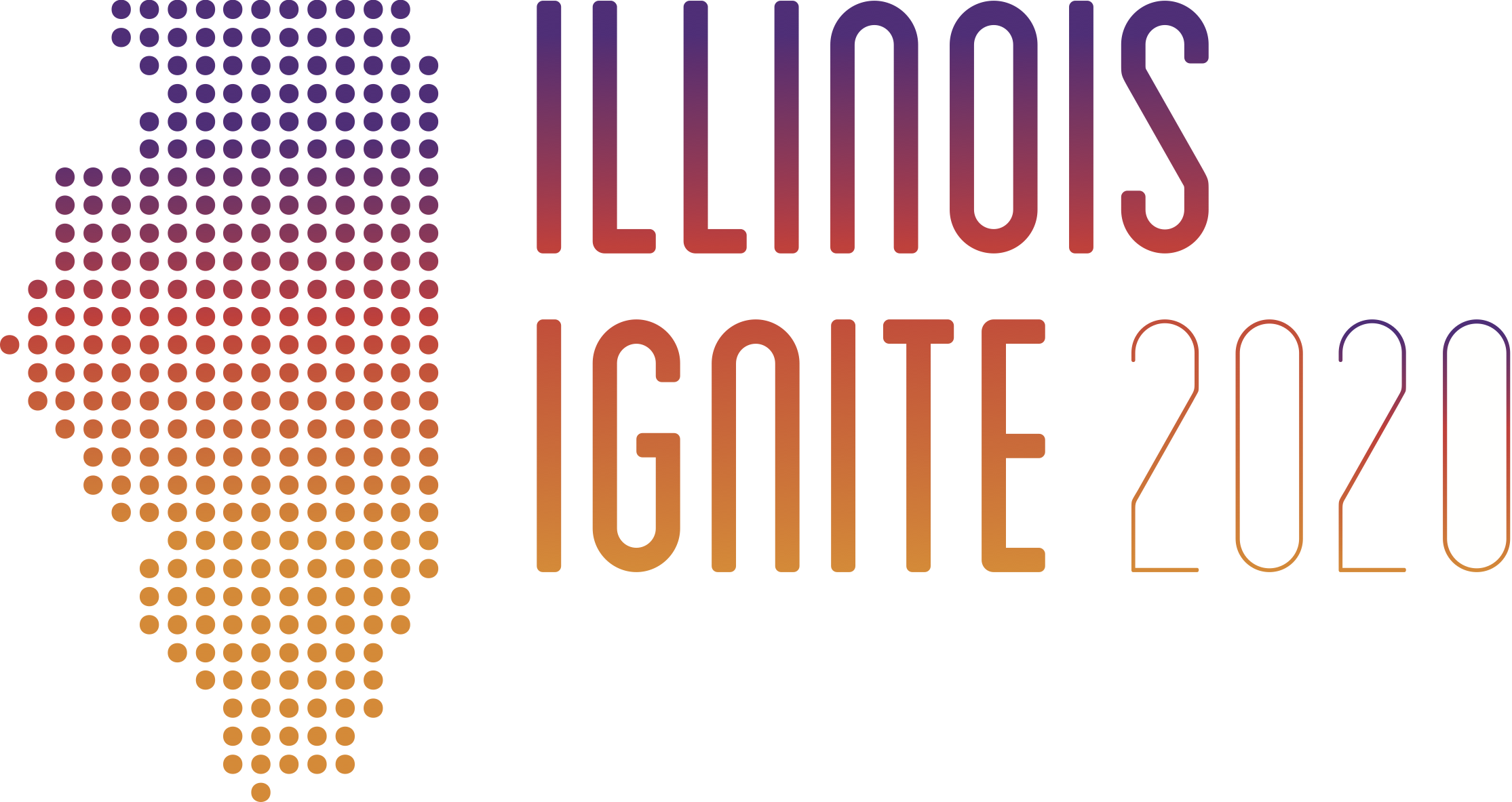You are here
Oncology

Illinois Ignite 2020 has ended. However, if you are interested in seeing the recording of a presentation(s), please email Nicole Nair, nnair@illinois.edu

Rationally Engineered HSV for Cancer Immunotherapy
Bin He studies herpes simplex virus 1 (HSV) and its interactions with the immune pathways in normal and malignant cells. With systematic work over the last two decades, he has made a series of findings, which include (i) the molecular mechanisms that contribute to the scientific foundation for the first oncolytic virus (Talimogene Laherparepvec) approved for human use, (ii) viral gene functions that govern HSV replication for tumor destruction, and (iii) viral immune targets necessary to prime antitumor immunity. Built on his prior research, he is interested in developing the next generation oncolytic virus for cancer immunotherapy.

Anti-Cancer Drug Discovery: From Pets to People
Paul Hergenrother uses small molecules to identify and validate novel targets for application in the treatment of intractable diseases. He is the co-founder and Chief Scientific Officer for Vanquish Oncology, which targets unexploited molecular defects in cancer cells to create first in class, personalized therapeutics for unmet or underserved cancer markets. His lab discovered an anticancer compound which is now in Phase 1 clinical trials. He is the recipient of multiple awards from the American Chemical Society throughout his career including the Sosnovsky Award for Cancer Research (2018), the Arthur C. Cope Scholar Award (2017), and the Akron Section Award (2016).
Startup: Vanquish Oncology -- targets unexploited molecular defects in cancer cells to create first in class, personalized therapeutics for unmet or underserved cancer markets

Drugging FOXP3 Through Molecular Mimicry
James Labelle’s research focuses on dissecting and pharmacologically targeting intracellular proteins to induce cancer cell death and manipulate the immune response. His group focuses on using portions of the actual proteins, or peptides, as drugs and biological tools to uncover specific molecular pathways in diseased and normal cells. Peptide-based therapeutics have enormous potential for immune modulation and direct cancer treatment, but have traditionally lacked efficient stabilization and delivery within patients, and thereby, have had limited clinical applications. His group is working to overcome these barriers within the lab and through collaboration with nanotechnologists and chemical engineers. Labelle is a recipient of the 2016 Hoogland Lymphoma Pilot Project Award, the 2016 Abbvie-UChicago Collaboration in Oncology Award, the 2018 Hyundai Hope on Wheels Scholar Award, and the 2020 American Cancer Society Research Scholar Award.

Enabling Design-Driven Medicine with Synthetic Biology
Joshua Leonard works at the interface of systems biology and synthetic biology in order to probe and program the function of complex, multicellular systems to develop transformative biotechnologies and enable a new paradigm of design-driven medicine. Using the tools of synthetic biology, biomolecular engineering, computational systems biology, and gene therapy, they develop technologies including programmable cell-based “devices,” immune therapies for cancer and chronic disease, smart vaccines, biosensors for global health applications, and tools for advanced metabolic engineering. Prof. Leonard is a Charles Deering McCormick Professor of Teaching Excellence.

Re-Educating the Immune System to Fight Cancer
Erik Nelson is developing novel lifestyle or therapeutic strategies to prevent and treat metastatic disease in breast and ovarian cancer patients. He is particularly interested in studying the 27-hydroxychoelsterol axis which is found to be important in regulating the immune system. Dr. Nelson was the lead author on a seminal study which found that by activating the estrogen receptors, a cholesterol metabolite (27-hydroxycholesterol) was a biochemical link between obesity and breast tumor growth (Science, 2013). In 2017, he was a State-of-the-Art lecturer for the International Congress of Comparative Endocrinology. He is the recipient of the National Cancer Institute Pathway to Independence Award (2013).

A New Immunotherapy Against Triple-Negative Breast Cancer
Kalipada Pahan is a professor of neurological sciences, biochemistry and pharmacology, and the Floyd A. Davis, MD, Endowed Chair in Neurology at the Rush University Medical Center in Chicago. He is also a VA scientist at the Jesse Brown VA Medical Center in Chicago. Currently, he is engaged in translational biomedical research involving Parkinson's disease, dementia, Alzheimer's disease, multiple sclerosis, and Batten disease. Over the years, the lab has identified a number of drugs as possible therapeutics for these neurodegenerative diseases. Furthermore, the Pahan lab has also discovered many fundamental processes of neuroimmunology, such as the regulation of life and death of brain cells by nitric oxide, the physical interaction of immune cells with brain cells, and the switching of toxic brain cells into protective ones.

